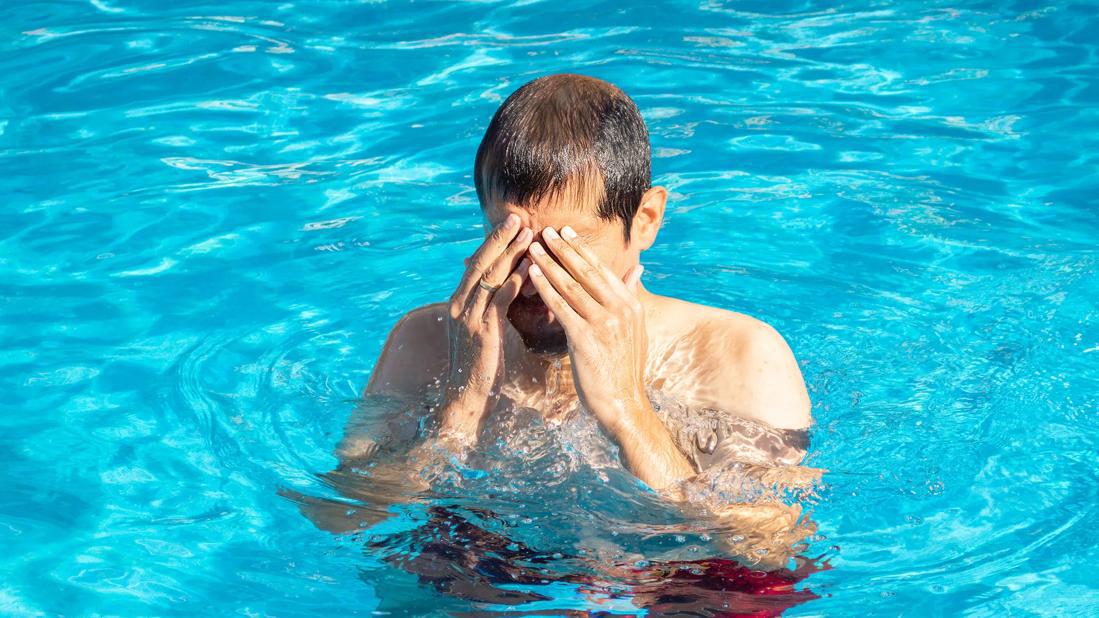How To Keep Chlorine Out of Your Eyes This Summer
To avoid swimmer’s eye, wear goggles, use eye drops and flush out your eyes with fresh, clean water when irritated

It can be a lot of fun spending your summer at the pool. But if chlorine leaves your eyes burning red, you might find the whole affair a bit of a drag.
Ophthalmologist Craig See, MD, explains how and why swimmer’s eye happens and how you can find relief.
How does chlorine affect your eyes?
When chlorine gets into your eyes, it can cause chemical conjunctivitis — also known as swimmer’s eye. This temporary condition causes:
Chlorine is one of several chemicals used to keep private and public pools safe from germs and bacteria. And it can irritate different parts of your body, like your ears or your nose, throat and lungs.
But it’s not the chlorine itself that’s necessarily the problem. The pH of the pool water, a number that describes how acidic the water is, can have a big effect. This is something a pool technician should be checking frequently.
“Pool water is also ‘hypotonic’ relative to the eye, meaning it has a lower salt concentration than our tears,” explains Dr. See. “Because it’s hypotonic, water tends to move from the pool into the cells of the eye, causing them to swell.”
This is why we use saline solution to rinse our eyes or store contact lenses in instead of fresh water.
“Swimmer’s eye is thought to be caused by a combination of chemical conjunctivitis, dry eye and corneal swelling,” Dr. See continues. “You also have the risk of recreational waterborne illnesses if you swim in fresh water like a pond, lake, creek or river. These infections can seriously damage the eye.”
How to get chlorine out of your eyes
If your eyes are irritated and red after swimming, these tips can help:
- Shower off and rinse your eyes with fresh, non-chlorinated water.
- Use preservative-free, lubricating eye drops as needed.
- Wear a cold compress over your affected eyes.
- Flush out your eyes with a sterile eye wash.
If nothing else works, schedule an appointment with an eye care provider.
How long does it take to get chlorine out of your eyes?
Swimmer’s eye usually clears up within a couple of hours. Dr. See says more severe cases might last a day or two, especially if you swim often and already have the grittiness of dry eyes. If you try at-home remedies for swimmer’s eye and your symptoms don’t go away after a couple of days, make an appointment with a primary care provider.
How to avoid swimmer’s eye
Swimmer’s eye is easily avoidable. Even avid swimmers can avoid getting chlorine in their eyes by following these tips:
- Don’t open your eyes underwater unless you’re wearing protective goggles.
- Don’t wear contact lenses when swimming, as these can trap chlorinated water under the lenses and worsen dry eyes and irritation.
- Rinse your face and hands with fresh, clean water immediately after swimming.
- Use lubricating eye drops before or after swimming, especially if you have dry eyes.
“Protecting your eyes from damage is important at any age,” advises Dr. See. “If you make time to keep your eyes healthy and clean, swimming underwater can be an enjoyable experience.”